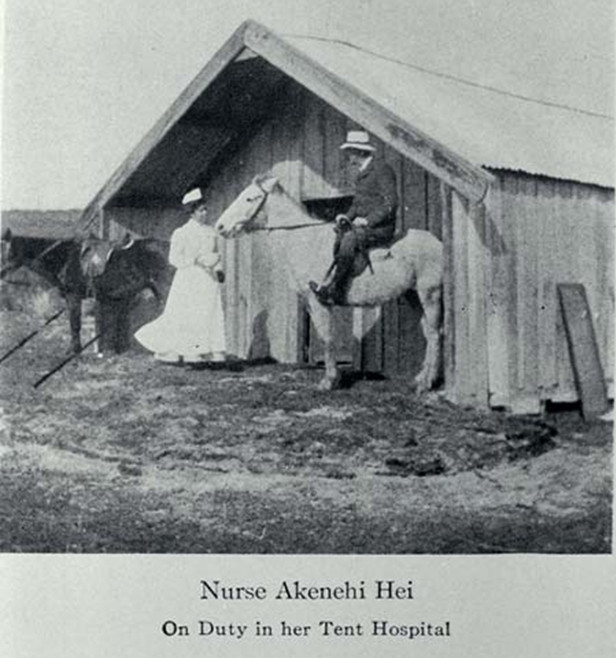Te Whānau a Apanui, Te Whakatohea, Ngāti Pukeko, Ngai Tai, Tuhoe, Te Arawa, Ngai Tawarere, Te Whānau a Manu
As the first Māori nurse to register using her Māori name, Akenehi Hei has become an inspiration and whaea tipuna to many aspiring Māori nurses, midwives and health professionals. Akenehi was determined to achieve her nursing and midwifery qualifications so that she could fulfil her passion to work with her people. Akenehi was able to incorporate both Māori and non-Māori values into her practice which was recognised by her peers and medical colleagues long after her early death due to typhoid.
Akenehi Hei was born and raised in Te Kaha, Bay of Plenty in the 1870s and was educated at St Joseph’s Māori Girls’ College in Napier. Her brother Hamiora (a member of the Te Aute College Students Association) and a great influence in her career. Hamiora encouraged Akenehi to become an assistant nurse at Napier Hospital and to learn the basic skills of nursing which would enable her to be a fit and 'efficient preacher of the gospel of health'. The role encouraged assistant nurses to return to their villages to 'counter' the influence of tohunga and to rear children in a more “acceptable way”.
In 1905 Akenehi extended her 'full' nursing training and passed her final exam in 1908. Anxious to be qualified, Akenehi also trained as a midwife.

The greatest difficulty Akenehi faced was balancing the demands of the training approach and values with cultural norms and traditions. Akenehi struggled to get the balance right, and she would often adopt a hard line approach with her Māori patients who refused to follow instructions, turning many locals against her, but as her experience grew she incorporated both Māori and non-Māori values into her practice. Te Akenehi said "great discretion must be used not to offend the patient's beliefs and uphold ones mission".
Akenehi was recognised by her peers and medical colleagues and was appointed as a hospital theatre sister. She returned to her passion of working with her people, and then later after a very short illness, succumbed to typhoid.
Suggestions at the time were made by Doctor Purdy, then Chief Health Officer, Tasmania, (whom Akenehi worked under) to honour and commemorate the work done by Akenehi Hei, by creating a Te Akenehi Hei medallion to be "worn as a badge by any Māori nurses who qualified as trained nurses and took up the service of nursing amongst Māori". Dr Purdy also said, "I am sure that my former colleague (Dr Te Rangihiroa) who was well acquainted with her work will see that the Māori people establish some suitable memorial to the memory of the pioneer of the movement among educated Māori women to spread the gospel of health among their people." (Kai Tiaki, 1911).